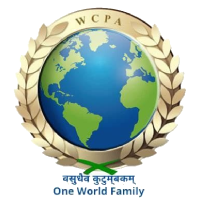WLA 63. Cooperative Communities Empowerment Act.
The Cooperative Communities Empowerment Act
13th Session of the Provisional World Parliament
Whereas, the ecological integrity and sustainable productivity of the Earth need to be restored in very many places around the world,
And whereas, the sense of community, brotherhood, and the spirit of working together for a common purpose needs to be promoted around the world,
And whereas, cooperative communities dedicated to sustainable, organic, and participatory management of the social, economic, and biological conditions of life have been known to be very successful in accomplishing these goals in many locations around the world,
And whereas, the world badly needs to move beyond capitalism and its evil sister, militarism, to economic and security arrangements based on human civility, brotherhood, democratic governance, community spirit, and mutual respect,
And whereas, it is widely known that effective environmental policies and social programs require working cooperatively with local populations in terms of their traditions, values, and forms of social organization,
And whereas, the Earth Federation seeks to unite humanity into the unity in diversity of many cooperative communities, cultures, regions, and nations living with freedom and peace upon the Earth,
We delegates of this 13th session of the Provisional World Parliament, meeting in Lucknow, India in December 2013, do hereby enact this Alternative Community Empowerment Act.
- Implementation under the Earth Constitution.
- The Provisional World Parliament and the Provisional Earth Federation Government shall promote the formation, organization, and successful operation of alternative communities such as ecovillages, permaculture projects, and cooperative trading arrangements whenever possible. If human and material resources are available, it may establish a commission or agency for this purpose.
- Upon initial ratification of the Earth Constitution and activation of the first operative stage of the Earth Federation Government, an “Agency for Cooperative Communities (ACC)” shall be set up within the Department of Habitats and Settlements (Article 7.3.8) to facilitate and empower the creation of successful alternative and cooperative communities within the Earth Federation.
- Functions of the AAC.
- The Agency for Cooperative Communities shall cooperate with the departments of Food and Agriculture, Population, Health and Nutrition, Education, Cultural Diversity and the Arts, Economic & Social Development and any other organizations or departments of the Earth Federation necessary for facilitating, empowering, and making possible the legitimate and legal establishment of people working together cooperatively to provide for themselves and their children all the basic necessities of life is a sustainable, non-polluting, and efficient manner.
- The ACC shall interact with leaders of existing alternative communities seeing wisdom, advice, and information concerning the successes was well as the difficulties in various forms of cooperative and alternative communities. It may recruit knowledgeable and experienced persons to help new communities establish themselves and successfully develop into permanent sustainable projects.
- The ACC shall create on-line resources about how to establish and successfully operate cooperatives and other alternative communities, outlining a variety of organizational, economic, agricultural, and energy use arrangements that may be optimal for certain cultures and/or certain geographic locations.
- The ACC shall cooperate with the Collegium of World Legislators, the Institute on Governmental Procedures and World Problems, and the Agency for Research and Planning with the purpose of educating World Legislators from the World Parliament Concerning how legislators can understand, support, and empower the development of cooperative communities within their districts.
- The ACC shall cooperate with the Emergency Earth Rescue Administration using the knowledge and policies developed by the ERA to interface and work with local cultural traditions and values, to empower local communities to develop clear ideas concerning sustainability and repair of ecosystems and to work cooperatively to build sustainable local communities.
- The ACC shall work with the World Service Corps in recruiting local people into the projects of eliminating poverty in communities, removing pollution, providing basic needs and services to all, developing low cost and effective health-care systems. The World Service Corps, if filtered through local systems, cultures and values, can be an effective tool in promoting sustainable cooperative communities of many varieties among the peoples of Earth.
- The ACC shall work with the Earth Financial Administration to set up economic arrangements that support the development of cooperative communities in the forms of seed grants, low-cost loans, accounting arrangements, dedicated debit cards, or other measures that facilitate and empower the development and successful functioning of such communities.
- Funding for the Agency for Cooperative Communities (ACC).
- The ACC shall be funded as a separate budget within the Department of Habitats and Settlements. It shall report annually to the Department of Habitats and Settlements concerning its activities, successes, and failures in relation to its budget, and resubmit its budget request each year. The ACC budget will be a separate item within the Budget of the Department.
- The Budget for the Department of Habitats and Settlements is, of course, part of World Administration which annually submits its detailed overall budget to the World Parliament for Approval.
Attested, Eugenia Almand, JD, Provisional World Parliament

